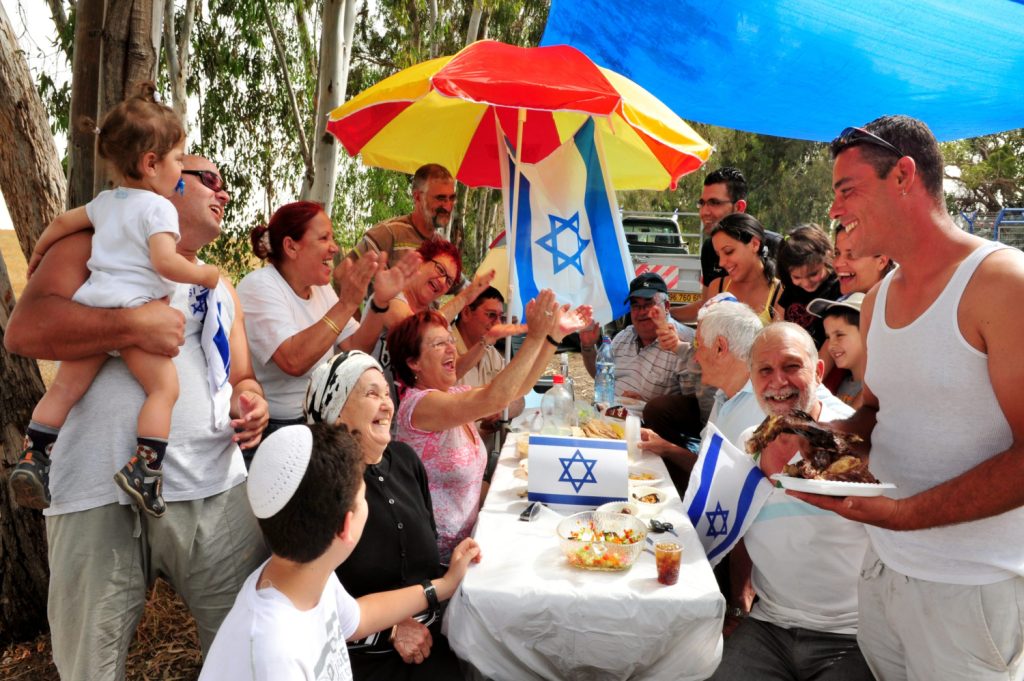Australia/Israel Review
Scribblings: The Secret to Happiness?
May 4, 2023 | Tzvi Fleischer

According to the World Happiness Index, published by the UN’s Sustainable Development Solutions Network, Israel has consistently ranked as one of the happiest nations in the world. What’s more, its rank has been improving in recent years.
In the 2018 report, using data from 2017, it ranked 19th in the world. In the 2020 report, 14th. In the 2022 report, ninth. And in the latest report, issued in March but using data from last year, it rocketed up to fourth. Only Denmark, Iceland and perennial top-place winner, Finland, ranked higher.
It seems surprising that successful, prosperous, apparently happy countries with minimal violence and disorder, like Australia and New Zealand, trailed the Jewish state in this index – which is based on both objective indexes, such as GDP and life expectancy, and subjective surveys in which residents rate their life satisfaction.
Israel has comparable objective stats to Australia in measures like GDP per capita, life expectancy and healthcare services, but Israelis face serious problems that do not apply in Australia. At first glance, you would expect these factors would make them less satisfied with their lives. They include: constant murderous terrorism and other serious security concerns, including repeated rocket attacks from Hamas-controlled Gaza and Iranian threats to wipe out the country; mandatory service in the army; higher overall costs of living; and the open demonisation of Israel and Israelis routinely expressed at the UN and other international forums.
Moreover, you probably would not expect the last few years to be the ones in which Israel would rocket up the World Happiness Index. Terrorism levels have been creeping up. There was a relatively major conflict with Gaza in May 2021 and a smaller one in August 2022, both of which sent many Israelis to bomb shelters for days. Iran is drawing ever closer to nuclear weapons capabilities, even as it continues to threaten to wipe Israel off the map. Coronavirus hit Israel pretty hard. And perhaps most important, between December 2018 and November 2022, Israel experienced its most serious political deadlock ever, with five inconclusive elections in just three years (the current major Israeli controversy over proposed judicial reforms started after the data for the latest World Happiness Index was already collected).
So, Israel’s happiness as a society appears odd and anomalous, and there are many attempts to explain it.
One explanation commonly offered is that Israel is a tiny country with tight-knit ties in terms of local communities, friendship groups, and especially, extended families.
Israeli columnist Herb Keinon has another theory that complements, rather than contradicts, the one about family and community. He says Israel’s high life satisfaction:
“Has to do with a sense of purpose and meaning that many people have living here, coupled with being close to loved ones and friends… Regarding a sense of purpose and meaning, which is a component of life satisfaction, many Israelis believe that life in Israel itself has religious meaning and significance. Others find that building and defending the first Jewish state in 2,000 years has historical significance that gives their lives meaning.
Some may look at the ongoing massive protests over the judicial overhaul and despair that this illustrates deep divisions in this country that threaten to tear it apart… The protests could also be a manifestation of what makes Israel score so high on the Happiness Index: that people feel living here has purpose.”
I think the idea that living in Israel gives purpose to the lives of many or most of its citizens is a valuable insight. I am a fan of the book, Man’s Search for Meaning by Viktor Frankl, an Austrian Holocaust survivor and psychiatrist. In it, Frankl explains his personal observation from Auschwitz and other Nazi concentration camps that fellow inmates who felt they had a strong reason to survive, whose survival was in service of a greater goal that gave their life meaning, were much more likely to make it through alive than those who lacked this drive.
I think Frankl’s core philosophical insight in the book is irrefutable – a person who can imbue the life they are living with a deep sense of meaning and a larger purpose will find it more fulfilling, and thus happier, than someone without this sense, regardless of material conditions. And as Keinon explains, Israel is a society that is particularly good at providing such meaning to large numbers of its citizens.
Grandma Power!
Another anomalous fact about Israel is its extremely high birth rate by OECD standards – an average of 2.93 births per woman, compared to an OECD average of 1.7. And this cannot be explained by reference to very high birth rates among minorities such as the ultra-Orthodox and Muslim populations – even completely secular Israeli women average considerably more children than the OECD average.
Much of this unique Israeli trend can be explained by Israel’s family-oriented culture and general expectations about family size. In surveys, Israelis say, on average, the ideal family has three children. In most other Western countries, the ideal is two children.
But there is something else that arguably facilitates larger family size – and perhaps life satisfaction – among Israelis: Grandma power! Or at least strong support provided by extended family, which generally lives close by.
As the Economist noted last year:
“One more explanation [for Israel’s anomalously high fertility rates] may be that Israeli grandparents tend to help out more than their peers in many other rich countries. Since Israel is small and densely populated, grandma is never far away. In one survey 83% of secular Jewish mothers aged 25-39 said they were supported by their child’s grandparents, whereas only 30% of German mothers said the same. In Israel the traditional family structure is still strong. In France and Britain more than half of babies are born out of wedlock. In Israel it is under 10%.”
Tags: Israel






